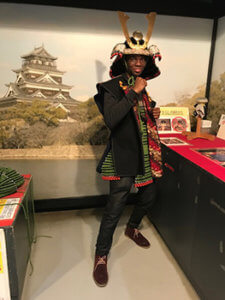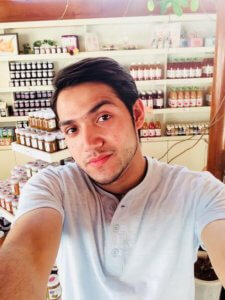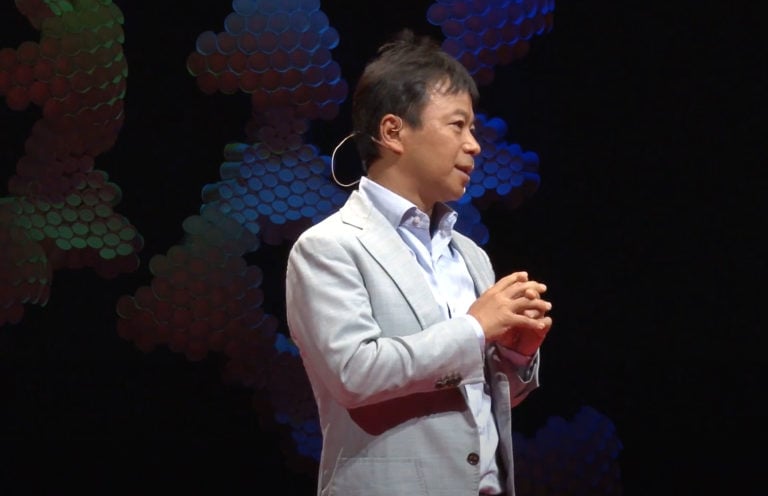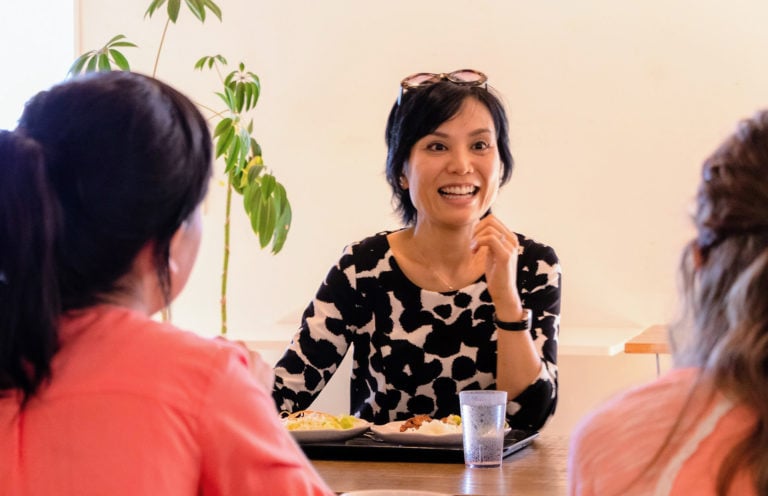 Written by Daisuke Masui
Written by Daisuke Masui
Mr. Masui teaches G10 Japanese at UWC ISAK Japan. He is also the Grade Level Coordinator.
“Why do I want my students to learn what I want them to learn? Why is it so essential to me? Why am I passionate about it?” This is how I started thinking about ‘authentic assessment’, which helps me answer the “why” questions that usually take the form of real-world skill sets I hope my students can apply in their everyday lives.
“What do I want my students to look like at the end of the year?” The concept of backward design is simply starting with the end in mind. What do I want my students to understand after and beyond my course? What do I want them to keep exploring and inquiring? What are the big ideas and skills that they can transfer to multiple contexts and situations, no matter what our society looks like? Of course, even if I start with the end in mind, that doesn’t mean I (or my students) can’t make detours or explore surprise findings.
As a language teacher, I want my students to be able to appreciate, understand, and do something with Japanese culture and language. This compelled me to think about the real value of Japanese language and culture for my G10 students. If I were a student who had just started learning Japanese and were living in the mountains in Japan with an international school community, what would I want myself to look like at the end of my first year?
This was what I came up with:
- to appreciate Japanese culture and language
- to communicate effectively with Japanese people in Japanese
- to make Japanese friends beyond the school community
- to learn more about authentic Japanese culture
- to plan my travel and travel alone
I conceptualized this yearlong project — a homestay with a Japanese family for a weekend, arranged by and prepared for by the students — as a way for them to both learn and demonstrate these ideas and skills.
Although we’re in Japan, our location means that my students don’t have much opportunity to interact meaningfully with Japanese people and families. I believe that my students would benefit from and enjoy tremendously the opportunity to connect with a Japanese family and get a taste of life with them. Also, being forced to speak Japanese is great motivation for further study and students’ language skills can improve significantly after such an experience. I also think that students will not only practice their communication skills but also mindfulness during their homestay, which is great leadership practice!
Furthermore, I strongly believe that my students should be active players in their learning and that they are more successful when their assessment is authentic through experiential learning. I encourage them to take initiative and try their best, even though they may fail at times. I deeply admire that my students practice leadership on a daily basis and strive to support their learning in any way possible.
Here are some stories from my G10 students with their homestay experience:
G10 Celine (Class of 2020, Taiwan)
I was extremely grateful for how much they have prepared for my homestay, including the meals, games, and activities. I will never forget their generosity and genuineness. My host made sure I was feeling comfortable and welcomed, and indeed, that is how I felt. In the beginning, I could tell my host was just as nervous as me but we loosened up as we had more conversations and interactions.
On the second day, my host’s father took me to his soba house and taught me how to make soba. It was definitely an experience I will remember forever because I have never made soba myself in my whole entire life. When I was really young, I used to watch my dad make Taiwanese noodles. During the soba lesson I felt quite nostalgic and it reminded me of my old times with my family.

Kwadwo (Class of 2020, Ghana)
I remember so many things from this homestay trip. One thing I will always treasure is the yukata they gave me. It is a physical reminder of the fun times I had with my host family, such as the trip to the Hiroshima Peace Park. Aside from the fun I had that day, the visit to the park made me realize the actual extent of WWII on the people of Hiroshima. It was a very touching experience. Finally, what I would truly remember forever is the connection I made with the Takahashi family. I would like to visit them again in the future.

Elham (Class of 2020, Afghanistan)
It was a great and worthy experience for me while staying in Japan. I really learnt a lot about Japanese culture. On the first day, the parents took me to Tsuruya and asked me what I wanted to eat for dinner. We bought different kinds of things and they prepared delicious meals for me, both Afghan and Japanese dishes, and they were delicious! Papa-san is the owner of Sawaya Jam in Japan. He took me to his factory and restaurant, and I was able to taste different kinds of jams and delicious Japanese foods. I will never forget their kindness. They took care of me and treated me as if I were their own son.




